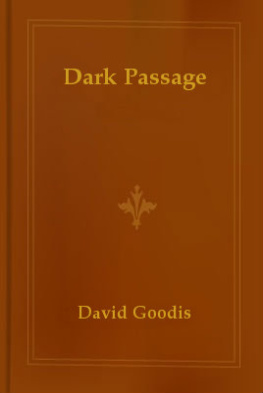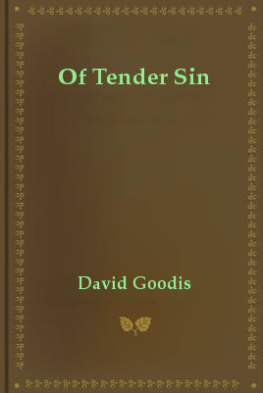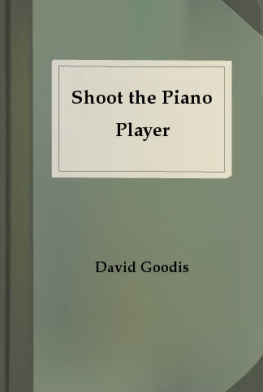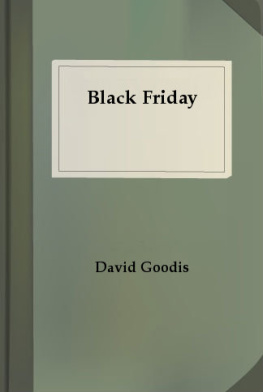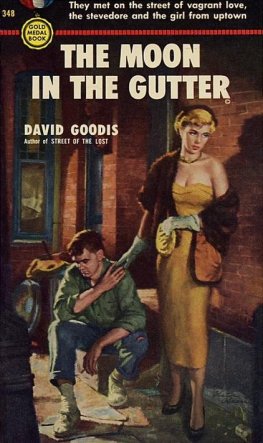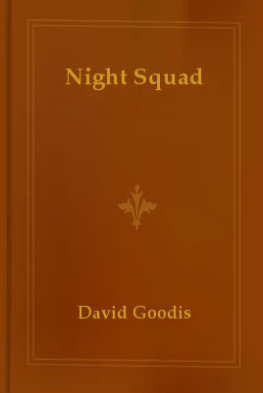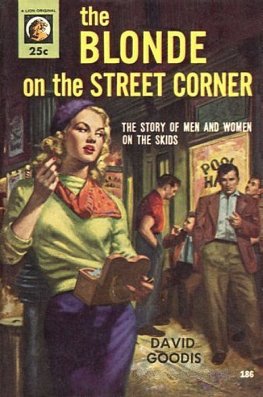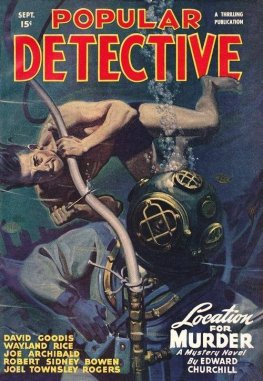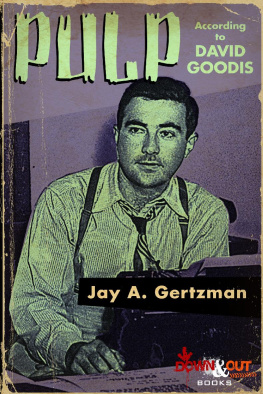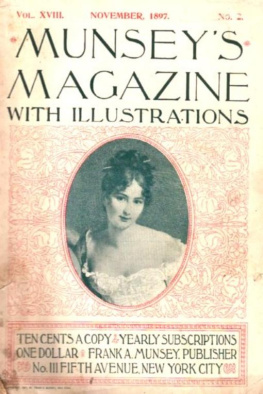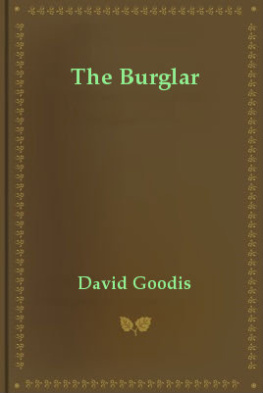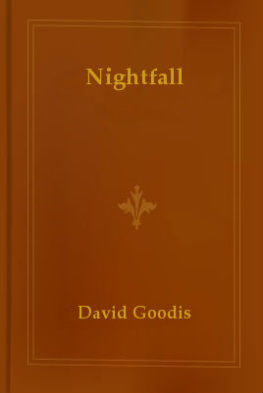David Goodis - Dark Passage
Here you can read online David Goodis - Dark Passage full text of the book (entire story) in english for free. Download pdf and epub, get meaning, cover and reviews about this ebook. year: 1999, publisher: Trafalgar Square Publishing, genre: Detective and thriller. Description of the work, (preface) as well as reviews are available. Best literature library LitArk.com created for fans of good reading and offers a wide selection of genres:
Romance novel
Science fiction
Adventure
Detective
Science
History
Home and family
Prose
Art
Politics
Computer
Non-fiction
Religion
Business
Children
Humor
Choose a favorite category and find really read worthwhile books. Enjoy immersion in the world of imagination, feel the emotions of the characters or learn something new for yourself, make an fascinating discovery.
- Book:Dark Passage
- Author:
- Publisher:Trafalgar Square Publishing
- Genre:
- Year:1999
- Rating:3 / 5
- Favourites:Add to favourites
- Your mark:
- 60
- 1
- 2
- 3
- 4
- 5
Dark Passage: summary, description and annotation
We offer to read an annotation, description, summary or preface (depends on what the author of the book "Dark Passage" wrote himself). If you haven't found the necessary information about the book — write in the comments, we will try to find it.
Dark Passage — read online for free the complete book (whole text) full work
Below is the text of the book, divided by pages. System saving the place of the last page read, allows you to conveniently read the book "Dark Passage" online for free, without having to search again every time where you left off. Put a bookmark, and you can go to the page where you finished reading at any time.
Font size:
Interval:
Bookmark:
ZEBRA BOOKS KENSINGTON PUBLISHINGCORP.
ZEBRA BOOKS
are published by
Kensington Publishing Corp. 475 ParkAvenue South New York, NY 10016
Copyright 1946 by David Goodis. Renewedin 1974 by the Estate of David Goodis.
All rights reserved. No part of this bookmay be reproduced in any form or by any means without the priorwritten consent of the Publisher, excepting brief quotes used inreviews.
First Zebra Books printing: July, 1988Printed in the United States of America
TO MY BROTHER
CHAPTER 1
It was a tough break. Parry was innocent.On top of that he was a decent sort of guy who never botheredpeople and wanted to lead a quiet life. But there was too much onthe other side and on his side of it there was practically nothing.The jury decided he was guilty. The judge handed him a lifesentence and he was taken to San Quentin.
The trial had been big and even though itinvolved unimportant people it was in many respects sensational.Parry was thirty-one and he made thirty-five a week as a clerk inan investment security house in San Francisco. He had beenunhappily married for sixteen months, according to the prosecution.And, according to the prosecution, a friend of the Parrys came intothe small apartment one winter afternoon and found Mrs. Parry onthe floor with her head caved in. According to the prosecution,Mrs. Parry was dying and just before she passed away she said Parryhad banged her on the head with a heavy glass ash tray. The ashtray was resting near the body. Police found Parrys fingerprintson the ash tray.
That was half the story. The other halfmeant the finish of Parry. He had to admit a few things. He had toadmit he hadnt been getting along with his wife. He had to admithe was seeing other women. The fact that his wife was seeing othermen didn't make any difference to the court. Then they got Parry toadmit that he hadn't gone to work that day. A sinus headache kepthim at home all morning and in the afternoon he had gone for a walkin the park. When he came home he found a crowd outside theapartment house and several police cars, the usual picture. Thatwas what he said. The police said differently. The police said thatParry had hit his wife on the head with the ash tray and thenarranged the body so that it would look as if she had tripped,knocking the ash tray off a table as she fell, then knocking herhead on the ash tray when she reached the floor. The police saidthat it was a very clever job and no doubt it would have succeededexcept for Mrs. Parry's dying statement.
Parrys lawyer tried hard but there wastoo much on the other side. There was only one weak link in theprosecution. It involved the fingerprints. When the prosecutingattorney claimed that Vincent Parry was a shrewd, devilishmurderer, Parry's lawyer came back with the statement that ashrewd, devilish murderer would have wiped fingerprints from theash tray. Parry's lawyer said it was no murder, it was anaccident.
That was about all, except the characterstuff. A lot of people wanted to know why Parry wasnt in uniform.The prosecution played that up big. Parry was a 4-F. The sinus wasone reason, a bad kidney was another. Anyway he was a 4-F and addedto that was something connected with a stretch in an Arizonareformatory when he was fifteen. He was an only child, an orphan,and his only relative in Maricopa said no and a week later he washungry and robbing a general store. Then again there was thisbusiness of playing around with other women and there was acollection of statements from bartenders and liquor dealers. Parryhad a habit of drinking straight gin despite the kidney trouble.The prosecution claimed that the gin was primary cause for thekidney trouble. Connecting the gin with the kidney, the prosecutionmade another connection and inferred that the 4-F status wasattained through excessive gin that made the kidney worse. A fewnewspapers bit into that and began calling Parry a draft dodger.Other newspapers took it up. There were editorials calling forfurther examination of the 4-F's who complained of kidney trouble.When Parry was sentenced his picture was in all the papers and oneof the papers captioned his picture Draft DodgerSentenced.
Just before he was taken to San Quentin,Parry got permission to talk to a friend. This was Fellsinger, whowas a few years older than Parry and worked in the same investmentsecurity house. Fellsinger was Parrys best friend and one of thepersons who believed Parry innocent. Parry gifted Fellsinger withall his possessions. These included a waterproof wrist watch, $63.75, a Packard-Bell phonograph-radio, a collection of phonographrecords featuring Parry's assemblage of Count Basie specials andthe late Mrs. Parry's assortment of Stravinsky and other moderns.Parry also handed over his clothes, but Fellsinger burned those andalso got rid of everything that belonged to Mrs. Parry. Fellsingerwas unmarried and he had spent most of his time with the Parrys. Hehad never liked Mrs. Parry and when he said good-by to VincentParry he broke down and cried like a baby.
Parry didnt cry. The last time he hadcried was when he was in the reformatory in Arizona. A tall guardhad punched him in the face, punched him again. When the guardpunched him a third time, Parry went out of his head and put hishands around the guard's throat. The guard was dying and Parry wassobbing with tears as he increased pressure. Then other guards camerunning in to break it up. They put young Parry in solitaryconfinement.
Later on the brutal guard pulled anotherrotten trick on one of the kids and the superintendent investigatedthe situation and had the guard dismissed.
Parry was thinking about that as heentered the gates of San Quentin. He hoped he wouldnt run into anybrutal guards. He had an idea that he might be able to extract someounce of happiness out of prison life. He had always wantedhappiness, the simple and ordinary kind. He had never wantedtrouble.
He didnt look as if he could handletrouble. He was five seven and a hundred and forty-five, and it wasthe kind of build made for clerking in an investment securityhouse. Then there was drab light-brown hair and drab dark-yelloweyes. The lips were the kind of lips not made for smiling. Therewas usually a cigarette between the lips. Parry had jumped at thejob in the investment security house when he learned it was thekind of job where he could smoke all he pleased. He was athree-pack-a-day man.
In San Quentin he managed to get threepacks a day. He worked as a bookkeeper and he made a financialarrangement with several non-smokers. He got along agreeably withother inmates and the first seven months were no hardship. In theeighth month he ran into the same sort of guard who had punched himduring his Arizona confinement. The guard picked on him and finallyarranged a situation where it was necessary to exert authority.Parry was willing to take the bawling out but he wasnt willing totake the punch. Then came the second punch. And on the third punchParry started to sob, just as he had sobbed in Arizona. He put hishands around the guard's throat. Other guards came in on it andbroke it up. Parry was placed in solitary.
He was in solitary for nine days. When hecame out he was fired from the bookkeeping job and switched to an-other cell block, much less comfortable than the one he had beenin. He learned that the guard had almost died and the episode hadreached outside the prison walls and it had been in the papers. Hewas now doing hard work with a spade and a sledgehammer and atnight he was practically out on his feet. He was almost too tiredto read the letters he received from Fellsinger. But one night hegot a letter from Fellsinger and it told him he was a sap formixing with that guard. It ruined any chances he might have for aparole. He got a laugh out of that. He knew he was going to spendthe rest of his life in this place. He knew what kind of life itwas going to be.
Font size:
Interval:
Bookmark:
Similar books «Dark Passage»
Look at similar books to Dark Passage. We have selected literature similar in name and meaning in the hope of providing readers with more options to find new, interesting, not yet read works.
Discussion, reviews of the book Dark Passage and just readers' own opinions. Leave your comments, write what you think about the work, its meaning or the main characters. Specify what exactly you liked and what you didn't like, and why you think so.

